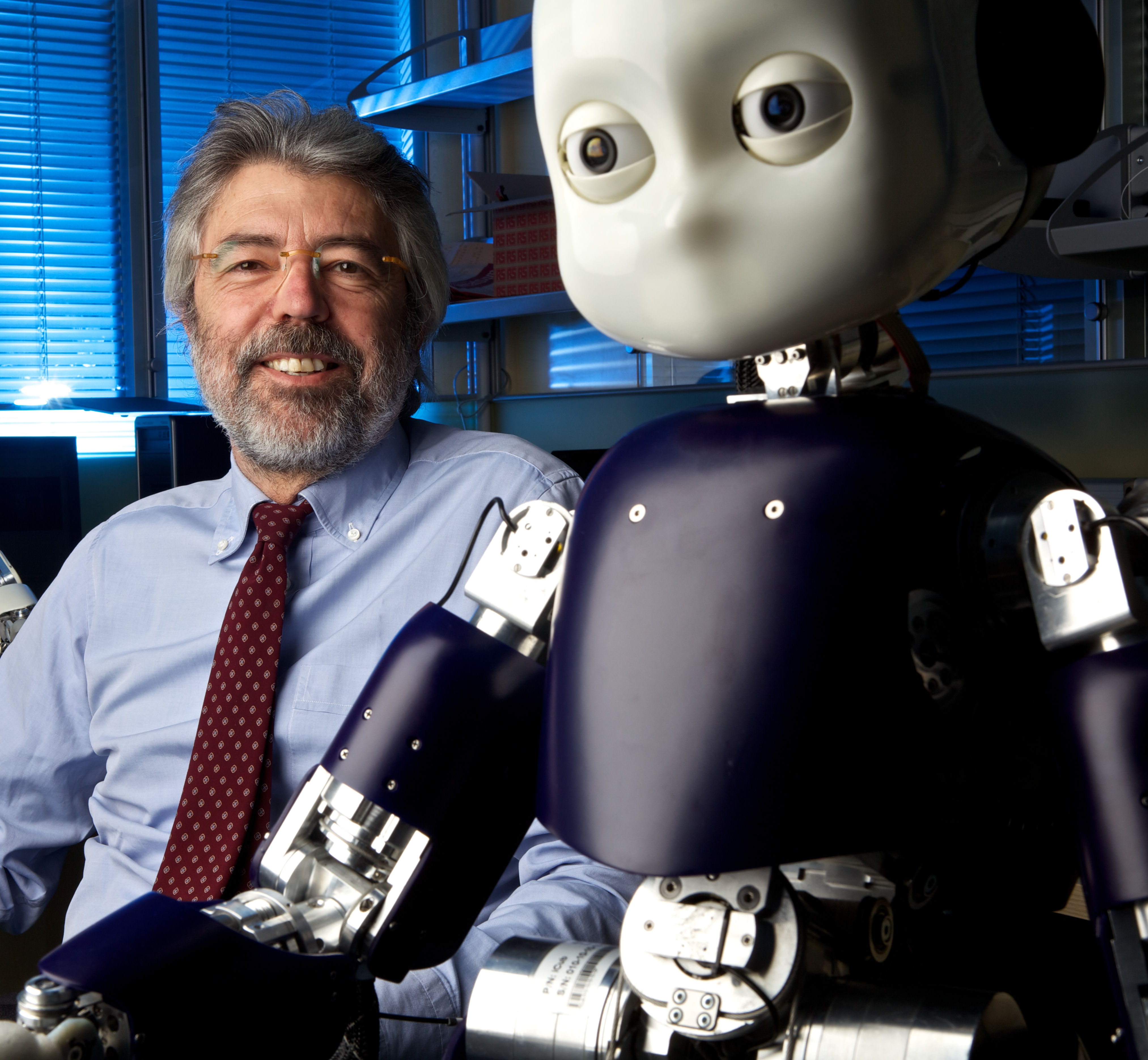09/Apr/2025 11:00 - 12:00
Room A101, Povo1
Keynote Lecture by Giulio Sandini (Italian Institute of Technology – Robotics, Brain, and Cognitive Sciences
Humans and Robots, Intelligence and Cognition

In recent years, we have been witnessing important technological developments both inthe field of robotics and in the development of the so-called “artificial intelligence (AI)”. The important results of the algorithms for generating texts in natural language, images, videos and sounds starting from textual descriptions, have been accompanied by the development of mechatronic technology that has enabled the creation of robots with increasingly surprising performances. This evolution has led to the hypothesis that the convergence between the two lines of research could lead as a consequence to the creation of robots with an “Artificial Intelligence” comparable to (or even superior to) human “intelligence”.
In this meeting I will try to illustrate, also through the results obtained from the study of the interaction between human beings and between human beings and robots, what main differences exist between aspects of human intelligence and “corporeal” Artificial Intelligence (embodied AI). I will try to explain how the distance between hypothesis and reality also arises from the ambiguity of the term “Artificial Intelligence“. Moreover, I will try to explain that, in order to equip robots with the cognitive abilities that characterize Human Intelligence, it is necessary to go beyond the capabilities of current robots and acquire a deeper and multidisciplinary knowledge of the uniqueness of our humanity.
How to participate
NOTICE: the event will be in Italian.
Participation is free but registration is recommended to have a guaranteed seat.
Registrations are open till April 8th or until places are filled.
About the speaker
Giulio Sandini is the Founding Director of the Italian Institute of Technology and a full professor of bioengineering at the University of Genoa. After earning his degree in Electronic Engineering (Bioengineering) from the University of Genoa in 1976, he conducted research at the Scuola Normale Superiore in Pisa, focusing on visual processing in both single neurons and human perception. He later joined Harvard Medical School as a Visiting Research Associate, where he developed diagnostic techniques for dyslexic children. Upon returning to Genoa in 1984 as an associate professor, he founded the LIRA-Lab in 1990, advancing research in robotics and artificial intelligence. His expertise led him to a visiting position at MIT’s Artificial Intelligence Lab in 1996.
Since 1980, Sandini has coordinated numerous international projects in computer vision, cognitive sciences, and robotics, including the European-funded RobotCub project, which developed the iCub humanoid platform. In 2004, he contributed to the establishment of IIT’s scientific program, particularly in robotics. Since 2006, as Director of Research at IIT, he has led the Robotics, Brain, and Cognitive Sciences department, focusing on human-centered technologies, artificial cognition, and sensorimotor integration. His research spans biological and artificial vision, computational neuroscience, and robotics, aiming to understand human sensory-motor coordination and cognitive development. A prolific researcher, he has authored over 300 publications and holds 30 international patents while playing a key role in international collaborations, project coordination, and research evaluation committees.
